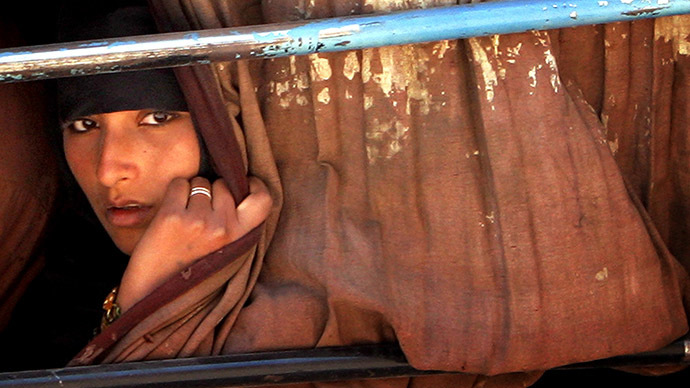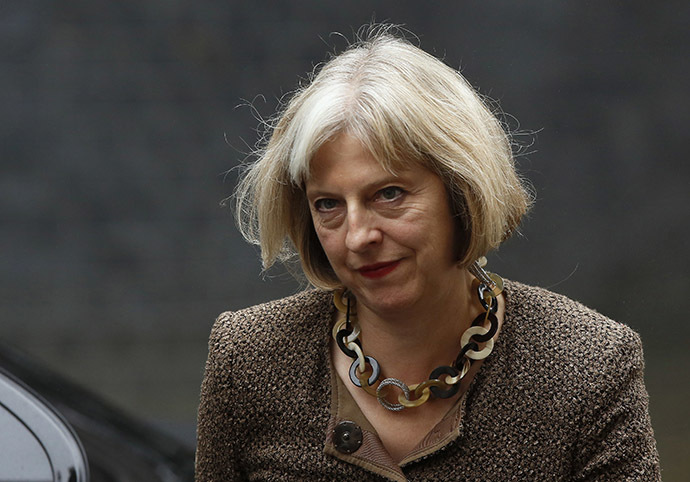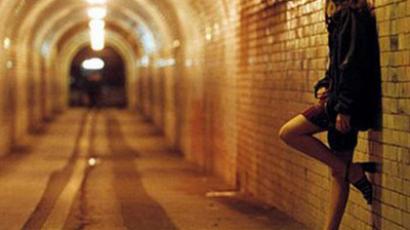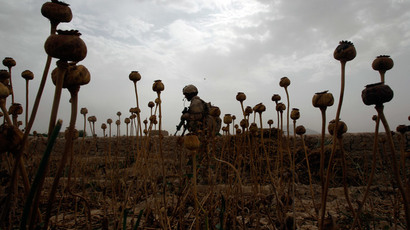Human Trafficking adviser warns Modern Slavery Bill leaves victims helpless

A former government adviser has called the UK’s efforts to curb slavery and human trafficking a “lost opportunity,” claiming the proposed bill, to be debated by MPs this week, would still leave abused victims vulnerable to exploitation.
Anthony Steen, chair of the Human Trafficking Foundation and a former adviser to the Home Secretary on the government’s flagship ‘modern slavery bill’, said the legislation had “yawning gaps” that failed to address the needs of victims, such as welfare initiatives or compensation payments.
“The bill is wholly and exclusively about law enforcement – but it shouldn’t be enforcement-based, it should be victim-based. We have majored on the wrong thing,” Steen told The Guardian.
“It is positive in the sense that it is an entirely new initiative, but is it going to do anything?”
The Modern Slavery Bill, drafted earlier this year by Home Secretary Theresa May, was designed to protect victims from being trafficked to and from the UK, and provide more support for victims of the crime.
According to reports produced earlier this year from Britain’s National Crime Agency (NCA), over 3,000 people have been trafficked for slavery and exploitation in the UK, with the internet being one of the biggest drivers in proliferating abuse.

Methods that traffickers used to lure victims included social media websites, online dating platforms and fake job recruitment sites. The victims identified by the NCA included over 600 children, and a large number of women from Eastern Europe, particularly from Albania, Slovakia and Lithuania.
Speaking to RT, a director of the Advice on Individual Rights in Europe (AIRE) center said the bill was ambitious, but it needed to take into account the conditions and support needed for trafficking victims.
“The Modern Slavery Bill was put forward in response to the European Union's Anti-trafficking Directive. It had lofty ambitions, but its focus has predominantly been on the prosecution of trafficking offences over the protection of victims,” he said.
“To meet its moral and legal obligations, the UK also needs to focus on the identification of trafficked persons, ensure that victims of trafficking have access to a range of statutory protections, support and services, including compensation and legal assistance.”
Evans also said more oversight was needed if the bill was to be made law, and that it needed to be “entirely independent of government or political considerations.”
READ MORE:Branded like cattle: Report shows hordes of victims, incl. kids, trafficked into UK
The NCA has revealed cases where victims of trafficking operations have been bought for sums ranging from £200-£6,000.
In other cases, victims were forced to hand over sums of up to £50,000 earned through sex work to cover the costs of flights and travel documents.
The House of Commons are to hold a debate on the outline of the bill on Tuesday, and it is expected to become law before the 2015 election.
“Modern slavery is a complex and multi-faceted problem which cannot be solved by legislation alone,” a Home Office spokesman said.
The bill “includes provisions to enhance statutory protection for victims while at the same time strengthening measures to disrupt, convict and imprison the criminals involved to prevent people becoming victims in the first place.”














